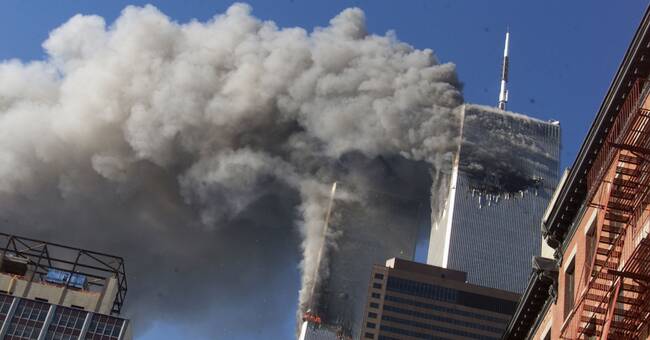In the days after the election victory, Joe Biden stood in Washington's dry winter landscape and promised his voters that: "America is back".
He spoke about the country's role on the international stage.
At a rapid pace, the United States resumed its membership in the World Health Organization, WHO, and again became one of the countries that committed itself to living up to the emissions targets of the Paris Agreement.
But the message from the world's most important superpower is that American soldiers should not be involved in international conflicts or in realizing American values in foreign countries.
The United States will instead strike back at its enemies with sophisticated weapons in minor operations
Ear to the ground
During the 2016 election campaign, Donald Trump felt the strong currents that existed in the country.
Since the terrorist attacks, the United States had invaded two countries, bombed four others for several years, and American soldiers continued to fall in distant wars.
At the same time, the country was recovering from financial crises, but American workers were forced to see their jobs move outside the country's borders.
Trump focused on domestic problems, wanted to slow down the endless conflicts to build democracies and improve the lives of others in distant lands.
With a different political outlook, President Biden has embarked on comprehensive, costly reforms aimed at American society and ended the military operation in Iraq and completed the withdrawal from Afghanistan, which Trump has begun.
They have, in different ways, interpreted the will of the American people: there is no point in trying military solutions to complicated civil wars, where American interests are limited.
The failure of nation-building
When "the war on terror" began, there was broad support for the effort both politically and not least among the public.
And internationally, you were with or against the United States.
However, the setbacks in Iraq, the heavy losses and the weapons of mass destruction that were never found eroded the backing of the war.
And the attempts to spread democracy instead gave rise to the terrorist sect IS.
In Afghanistan, at the same time, year after year, the fighting continued mostly beyond the big headlines and the burning attention.
Stubbornly, US presidents claimed that it was not about nation-building, but still billions were invested in education and in building the infrastructure in the country.
The operations in Iraq, Syria, Libya and Afghanistan are described as American failures and reasons why a war-weary nation did not forget the terrorist attacks, only stopped believing in the tools used to fight US enemies.
20 years of war have rather created even more dangerous terrorists to fight - although we must remember that nothing like 9-11 has hit the United States during these two decades.
The future
Afghanistan now risks becoming a new haven for international terrorism, while US allies can no longer rely on US support to protect their security.
In the coming months, developments in Afghanistan may well be the first major test of President Biden's new plan for the country's international role.
It is a new America that is "back".
But the Taliban are back in control of power in Afghanistan and terrorist groups are allowed to operate on its territory.
20 years after the terrorist attacks, not much has been achieved after a bloody "war on terror".
And how would a new major attack, planned in Afghanistan, be handled by Joe Biden?

